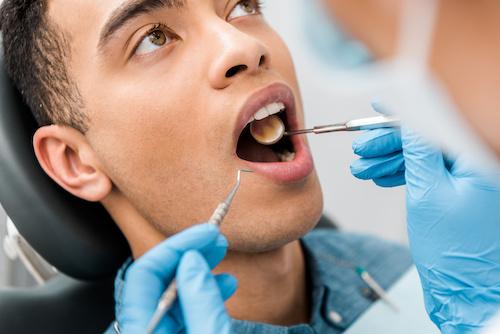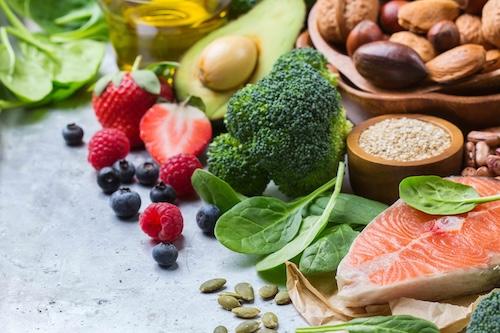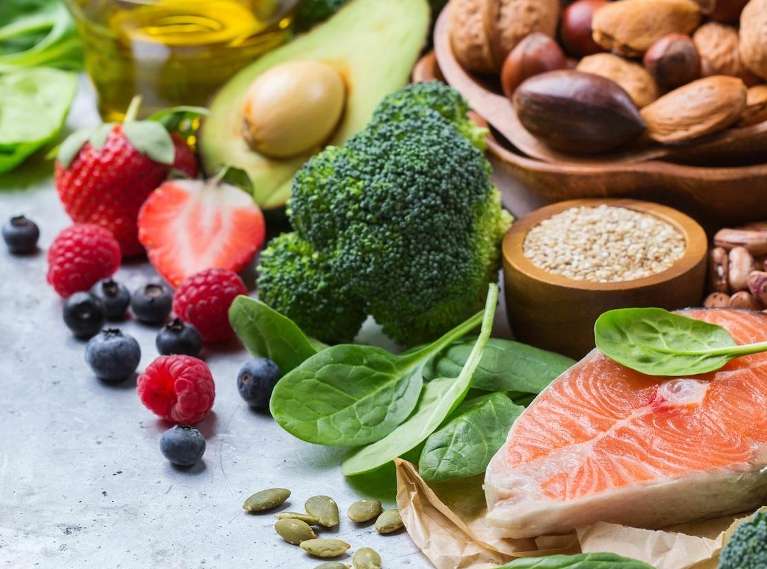What You Should Know about Oral Cancer
 While most people are well aware of the links between oral cancer and smoking and alcohol, other factors can also increase your susceptibility to the disease. Some food-borne carcinogens can actually damage DNA at the cellular level. Preserved foods, particularly deli meats, ham, and bacon, contain nitrates, which convert to nitrosamines when ingested. Nitrosamines are also found in beer! In addition, nitrite pickling salt is sometimes used as a preservative in some fish and fish by-products and some cheeses.
While most people are well aware of the links between oral cancer and smoking and alcohol, other factors can also increase your susceptibility to the disease. Some food-borne carcinogens can actually damage DNA at the cellular level. Preserved foods, particularly deli meats, ham, and bacon, contain nitrates, which convert to nitrosamines when ingested. Nitrosamines are also found in beer! In addition, nitrite pickling salt is sometimes used as a preservative in some fish and fish by-products and some cheeses.
How can you decrease your chances of developing oral cancer? First, if you currently smoke, stop! You should also reduce your intake of alcohol. You can help build up your defenses by eating antioxidant-rich foods, including carotenoids (found in red- and orange-colored fruits and vegetables), lycopene (found mostly in tomatoes), and other phytonutrients (derived from plant-based foods that contain vitamins C and E). These will go a long way in helping to prevent DNA damage. Eating more plant-based foods, in general, will contribute to your oral health.
Lastly, a strain of the human papillomavirus (HPV 16), which is sexually transmitted, can also contribute to oral cancer.
None of these suggestions are meant to limit your enjoyment of life, but being well-informed could save your life!
Learn How to Prevent Oral Cancer from Your Dentist in Wilmington, Delaware
If you have concerns about your family's diet or nutrition or questions about oral cancer prevention, the Justison & Gladnick Family Dentistry team is here to help. Please call us to schedule an appointment.
 Dr. Gladnick firmly believes in the power of good nutrition and its effects on dental health. As part of his practice's overall preventative care, he offers nutrition counseling. For example, some may be surprised to learn that candy and sodas are not necessarily the primary offenders!
Dr. Gladnick firmly believes in the power of good nutrition and its effects on dental health. As part of his practice's overall preventative care, he offers nutrition counseling. For example, some may be surprised to learn that candy and sodas are not necessarily the primary offenders!
 Bacteria found in the dental plaque may be invisible to you, but they cover your teeth in a thin film, increasing along the gum line. Once they combine with the carbohydrates you ingest, they form an acid that bathes your teeth for twenty minutes after consuming them! The potential for cavity formation is increased the longer the carbohydrate remains in your mouth. When you eat a cracker, for example, the remnants tend to hide in the crevices of your teeth, thus increasing the time of the acid formation.
Bacteria found in the dental plaque may be invisible to you, but they cover your teeth in a thin film, increasing along the gum line. Once they combine with the carbohydrates you ingest, they form an acid that bathes your teeth for twenty minutes after consuming them! The potential for cavity formation is increased the longer the carbohydrate remains in your mouth. When you eat a cracker, for example, the remnants tend to hide in the crevices of your teeth, thus increasing the time of the acid formation. 
 While most people are well aware of the links between oral cancer and smoking and alcohol, other factors can also increase your susceptibility to the disease. Some food-borne carcinogens can actually damage DNA at the cellular level. Preserved foods, particularly deli meats, ham, and bacon, contain nitrates, which convert to nitrosamines when ingested. Nitrosamines are also found in beer! In addition, nitrite pickling salt is sometimes used as a preservative in some fish and fish by-products and some cheeses.
While most people are well aware of the links between oral cancer and smoking and alcohol, other factors can also increase your susceptibility to the disease. Some food-borne carcinogens can actually damage DNA at the cellular level. Preserved foods, particularly deli meats, ham, and bacon, contain nitrates, which convert to nitrosamines when ingested. Nitrosamines are also found in beer! In addition, nitrite pickling salt is sometimes used as a preservative in some fish and fish by-products and some cheeses.

